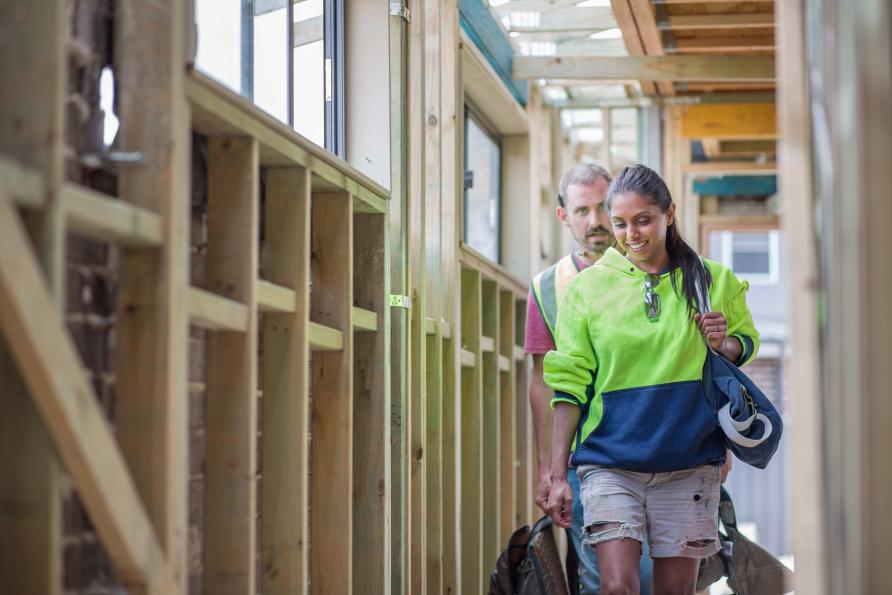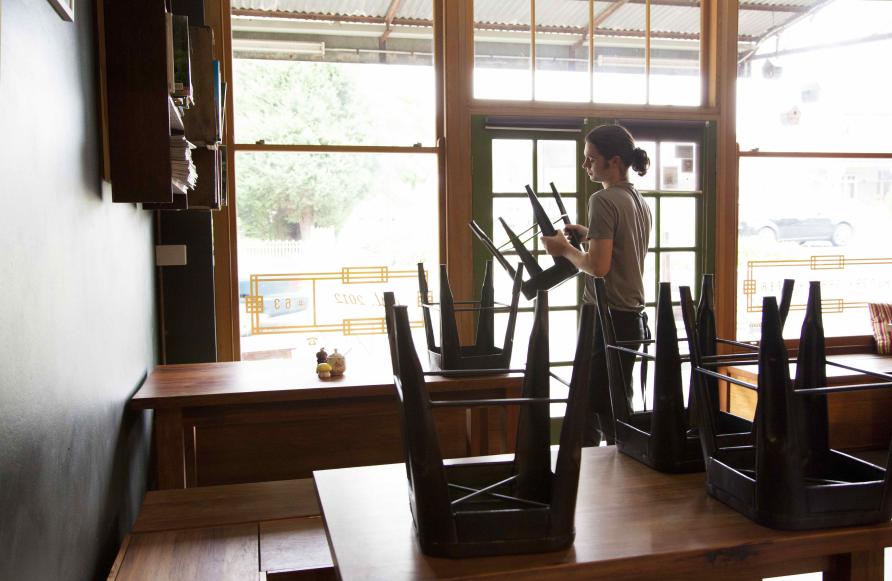The young Australian workers hit hard by COVID-19

Already experiencing high levels of unemployment and under-employment before the spread of COVID-19, young people are likely to be disproportionately impacted by pandemic-induced job losses because of the industries they often work in, like hospitality and retail.

COVID-19 has exacerbated an already difficult employment market for young people.
A new study at the University of Melbourne – the Youth Employment Study – is looking at the employment experiences of young Aussies during and after the pandemic. The research aims to recognise their specific needs as recovery policies are considered.
According to Treasury figures released on April 14, Australia’s unemployment rate is expected to increase from 5.1 per cent to 10 per cent in the June quarter due to the pandemic.
For young people, we know that the longer they are out of work, the more likely it is that their skills and productivity deteriorate, as does their self-esteem and mental health.
Young people who have lost jobs during this pandemic, or were on the cusp of entering the workforce, risk missing out on building much-needed skills and experience during the crucial early stages of their careers.
History shows that damage to career prospects and earning potential is often long-term and even permanent.
Young Australians were already doing it tough. Youth unemployment rates in Australia were more than double the overall unemployment rate, and were almost three times higher than for those aged 25 and over.
Research shows that young workers were already acutely exposed to job stressors and under-employment, too.

Youth unemployment rates were already more than double the overall unemployment rate.
The Youth Employment Study (YES) aims to capture the voices of young people grappling with the complexities of employment in a pandemic, guided by an advisory group of young people actually experiencing the economic consequences of the pandemic.
“Losing your job and the supports that come along with it means that your financial stability is at risk, and so is your mental state,” says YES Youth Advisory Group member, 20-year-old Rhiannon Jones.
“Not all of us are equipped or resilient enough to bounce back into an unsteady job market.”
Like thousands of other young people, Rhiannon has experienced precarious working conditions that society paternalistically views as a ‘rite of passage’. Her work was insecure and her hours didn’t cover her living expenses. Many other young people find themselves at, or below, the poverty line and/or in a debt trap.
Rhiannon is now out of work. She worries about when she’ll return to the labour market and what kind of job she will return to.
“A good job will not only provide youth with an income but also enrich our lives. We are able to be held accountable, be productive, work towards goals, interact with others, have a sense of accomplishment and so many other factors that are invaluable,” Rhiannon says.

Young people are likely to be disproportionately impacted by pandemic-induced job losses.
Job losses and financial hardship generally hit young casual workers hardest during an economic downturn. The Grattan Institute estimates that 15 to 19-year-olds are the most likely to lose their job due to shutdowns of non-essential services and physical distancing measures. Those aged 20-29 are next most affected.
Young workers are vastly over-represented in the sectors hardest hit by current measures.
Research using ABS data shows that three of the six industries that have reduced staff hours most due to COVID-19 are hospitality, retail and arts, and recreation. These areas employ 45 per cent of young people, compared to 27 per cent of other age groups.
Furthermore, countless young Aussies are falling through the welfare cracks.
Young people are more likely to work casually (54 per cent) compared with any other age group (18 per cent). Many young people choose casual work because of study commitments, but for some, it’s all they can get.
More than one quarter of young workers are employed on a casual basis and have been with their current employer less than 12 months. That makes them ineligible for the Federal Government’s JobKeeper payment.
This negatively impacts their financial situation and curtails their ability to swiftly return to jobs they had before.
As the labour market attempts to recover from the economic impact of COVID-19, unemployment will continue to be a significant problem. Many businesses simply won’t survive while others won’t be able to keep the number of workers they had before COVID-19.

Industries like hospitality, retail, as well as arts and recreation employed 45 per cent of young people.
In a working-world where ‘experience’ is paramount – and where you need experience to get experience – we risk marginalising a generation of young people as they navigate a shrinking labour market.
As young people are already over-represented in unemployment and under-employment statistics, it is vital to recognise and address their needs in recovery policiesto ensure this crisis doesn’t exacerbate existing inequities for younger workers.
“I just hope that after all of this, people will give us a chance,” says Bella White, another YES Youth Advisory Group member.
Tangible, targeted and ongoing support is needed.
Connecting young jobseekers to employers as well as tailoring education and training to ensure young peoples’ skills meet industry demand is critical to the recovery of the youth labour market.
YES will work with young people to imagine and shape a labour market that includes them. Otherwise, we risk thousands more Australians falling into hardship and debt.
Let’s take this opportunity to overhaul a system that already wasn’t working for young people to give them a chance.
The Youth Employment Study (YES) is the first study to do surveys with a large group of young people that are accessing Australian employment programs. YES aims to work out what helps young people get jobs and stay in jobs. To find out more, visit the YES website. This article was written by Stefanie Dimov, Dr Tania King, Marissa Shields and Professor Anne Kavanagh of the University of Melbourne. It was published by Pursuit.
Marissa Shields is a PhD candidate in the Disability and Health Unit at the Melbourne School of Population Health. Her research focuses on young people, disability, employment, and mental health.














